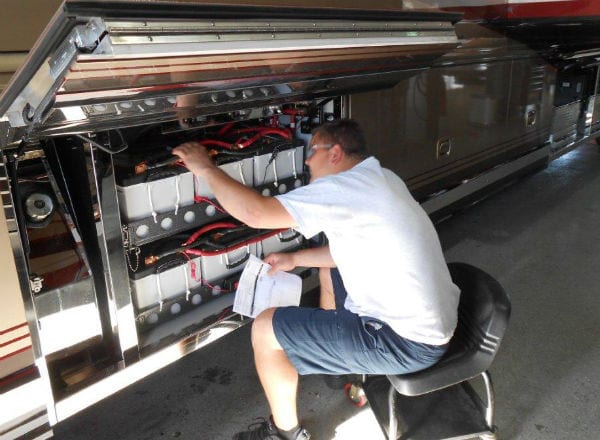 Responsive customer service and a fast-moving field service team are important for any business. But, lets be honest, not all products are created equal: When a microwave shorts out, most people don’t really expect the manufacturer to move mountains in an effort to get their machine back up and running ASAP.
Responsive customer service and a fast-moving field service team are important for any business. But, lets be honest, not all products are created equal: When a microwave shorts out, most people don’t really expect the manufacturer to move mountains in an effort to get their machine back up and running ASAP.
But what about a multi-million dollar private jet, or a yacht? It’s safe to say expectations are a little higher there.
“At $1.5 million a coach, our buyers rightfully expect us to do whatever it takes to keep them on the road and happy,” says John Clark, vice president of customer service for Newell Coach, which makes luxury motor homes.
For businesses that trade in super-expensive, luxury items, having personalized customer service and a field operations staff ready to cross the country at the drop of a hat is practically a must. A repairman at the ready is part of what customers expect when they drop that kind of cash.
Clark says his company has flown techs out for some pretty out of the ordinary service requests — it once sent techs to Saudi Arabia to work on a high-end RV for a Saudi prince’s wives. Recently, it sent techs to Italy last-minute to help a racing crew traveling from one event to the next when their RV had trouble. Hard to imagine that level of support from your dishwasher manufacturer.
Gulfstream, which makes personal jets worth millions of dollars, similarly boasts a top-notch field service operation. The company employs 145 technicians, two dedicated airplanes of its own, and eight pilots ready and on call to be dispatched out for an emergency repair anywhere in the world. (And we mean anywhere — its longest customer service call was 3,266 miles, to a jet owner in Anchorage.)
The company uses a data-link system to communicate with its own planes, allowing the company to receive automatic, real-time updates when something goes wrong. It’s basically a machine-to-machine connection that lets field service techs know what they’re in for before they hop in their plane/train/van.
“This real-time reporting enhanced safety and reduces maintenance times by allowing Gulfstream to arrange for parts or service personnel to be readily available before the aircraft [in need of servicing] lands,” a company spokesman told the SmartVan.
But despite this over-the-top level of service, the key tenets of customer service — reliability, performance, attention to detail — remain the same, whether you’re fixing the kitchen sink, or flying halfway across the world to tune up a Saudi prince’s motor home. Newell Coach’s Clark explained:
“I believe 90 percent of our success is owed to treating our customers with respect, doing our best to get it right the first time, and stepping up to the plate when we err,” he said. “… A well-paid, smart, and motivated service technician, paired with a knowledgeable and service-oriented work coordinator, is the winning combination in customer service. Elaborate or new facilities, new trucks, etc., are nice-to-haves, but they mean very little if we don’t prove to our customers from the get-go that we truly care.”
All customers, he said, ultimately want the same thing. How far companies are willing to go — literally in some cases — to fulfill those requests ends up being the difference between luxury and the pits.
Related: Servicing a Different Stratum of Fleet at the Super Bowl.
Click here to download a free whitepaper, “Five Steps to Make Field Service Profitable.”

Share this: